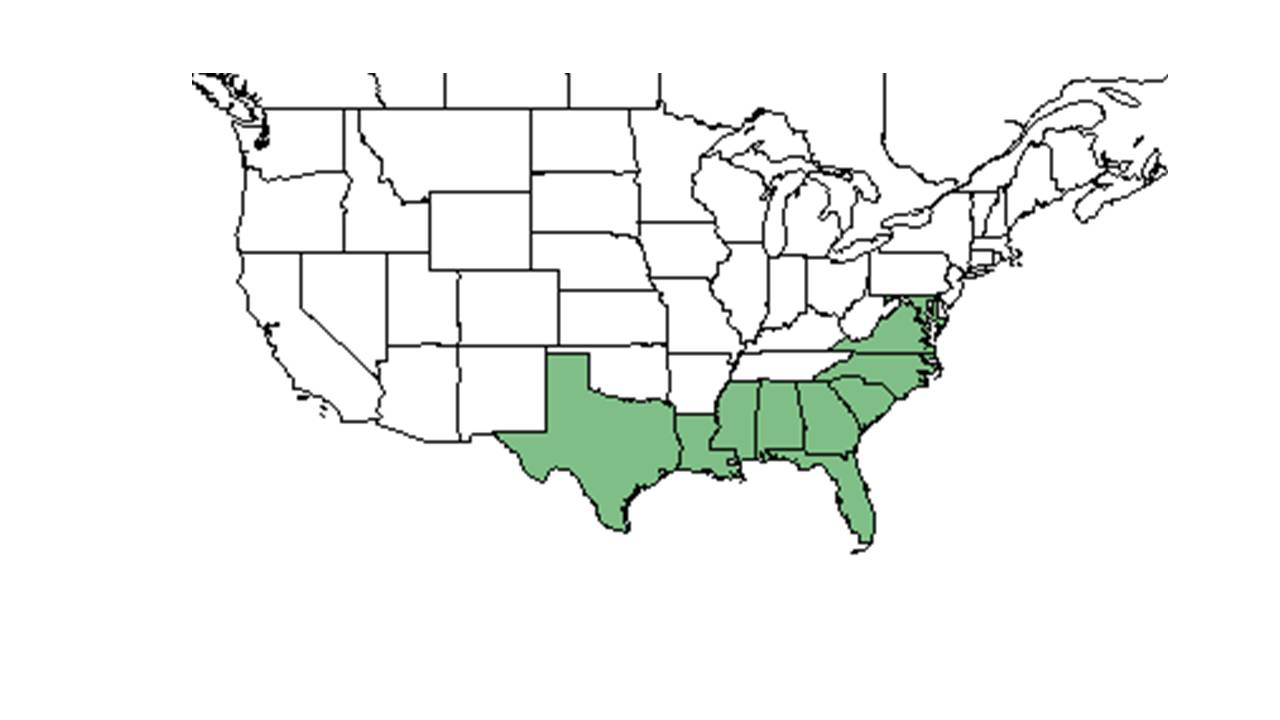Difference between revisions of "Carex verrucosa"
| Line 26: | Line 26: | ||
==Ecology== | ==Ecology== | ||
===Habitat=== <!--Natural communities, human disturbed habitats, topography, hydrology, soils, light, fire regime requirements for removal of competition, etc.--> | ===Habitat=== <!--Natural communities, human disturbed habitats, topography, hydrology, soils, light, fire regime requirements for removal of competition, etc.--> | ||
| − | Carex verrucosa are sedges almost restricted to wet savanna communities.<ref name="Walker and Peet 1983">Walker, J. and R. K. Peet (1983). "Composition and species diversity of pine-wiregrass savannas of the Green Swamp, North Carolina." Vegetatio 55: 163-179.</ref> | + | ''Carex verrucosa'' are sedges almost restricted to wet savanna communities.<ref name="Walker and Peet 1983">Walker, J. and R. K. Peet (1983). "Composition and species diversity of pine-wiregrass savannas of the Green Swamp, North Carolina." Vegetatio 55: 163-179.</ref> |
Thrives in wetland depressions in the southeastern coastal plain.<ref name="Edwards and Weakley et al 2001">Edwards, A. L. and A. S. Weakley (2001). "Population biology and management of rare plants in depression wetlands of the southeastern coastal plain, USA." Natural Areas Journal 21: 12-35.</ref>. This species is found in sphagnum bogs in pine woods depressions, cypress ponds, and sweetbay-titi swamps. It is tolerant a range of light levels, from shady to sunny. It grows in sandy loam and peaty soils that are wet to saturated. Also found in roadside ditches (FSU Herbarium). | Thrives in wetland depressions in the southeastern coastal plain.<ref name="Edwards and Weakley et al 2001">Edwards, A. L. and A. S. Weakley (2001). "Population biology and management of rare plants in depression wetlands of the southeastern coastal plain, USA." Natural Areas Journal 21: 12-35.</ref>. This species is found in sphagnum bogs in pine woods depressions, cypress ponds, and sweetbay-titi swamps. It is tolerant a range of light levels, from shady to sunny. It grows in sandy loam and peaty soils that are wet to saturated. Also found in roadside ditches (FSU Herbarium). | ||
Revision as of 15:39, 22 September 2015
| Carex verrucosa | |
|---|---|

| |
| Scientific classification | |
| Kingdom: | Plantae |
| Division: | Magnoliophyta - Flowering plants |
| Class: | Liliopsida – Monocotyledons |
| Order: | Cyperales |
| Family: | Cyperaceae |
| Genus: | Carex |
| Species: | C. verrucosa |
| Binomial name | |
| Carex verrucosa Muhl. | |

| |
| Natural range of Carex verrucosa from USDA NRCS Plants Database. | |
Common name: warty sedge
Contents
Taxonomic notes
Description
A description of Carex verrucosa is provided in The Flora of North America.
Distribution
Ecology
Habitat
Carex verrucosa are sedges almost restricted to wet savanna communities.[1] Thrives in wetland depressions in the southeastern coastal plain.[2]. This species is found in sphagnum bogs in pine woods depressions, cypress ponds, and sweetbay-titi swamps. It is tolerant a range of light levels, from shady to sunny. It grows in sandy loam and peaty soils that are wet to saturated. Also found in roadside ditches (FSU Herbarium).
Phenology
Flowering has been observed in March through June, and also in October (FSU Herbarium).
Seed dispersal
Seed bank and germination
Fire ecology
Pollination
Use by animals
Diseases and parasites
Conservation and Management
Cultivation and restoration
Photo Gallery
References and notes
Florida State University Robert K. Godfrey Herbarium database. URL: http://herbarium.bio.fsu.edu. Last accessed: June 2014. Collectors: L. C. Anderson, J. R. Burkhalter, K. C. Burks, G. R. Cooley, S. Cooper, R. J. Eaton, A. Gholson, R. K. Godfrey, D. W. Hall, E. Keppner, L. Keppner, G. R. Knight, R. Kral, S. W. Leonard, D. L. Martin, S. McDaniel, R. A. Norris, A. Schmidt, G. Schultz, C. R. Slaughter, L. B. Trott, and C. E. Wood Jr. States and Counties: Florida: Bay, Calhoun, Clay, Columbia, Duval, Escambia, Franklin, Gadsden, Hamilton, Holmes, Jackson, Jefferson, Leon, Liberty, Marion, Polk, Suwannee, Taylor, Wakulla, Walton, and Washington. Georgia: Thomas.
- ↑ Walker, J. and R. K. Peet (1983). "Composition and species diversity of pine-wiregrass savannas of the Green Swamp, North Carolina." Vegetatio 55: 163-179.
- ↑ Edwards, A. L. and A. S. Weakley (2001). "Population biology and management of rare plants in depression wetlands of the southeastern coastal plain, USA." Natural Areas Journal 21: 12-35.